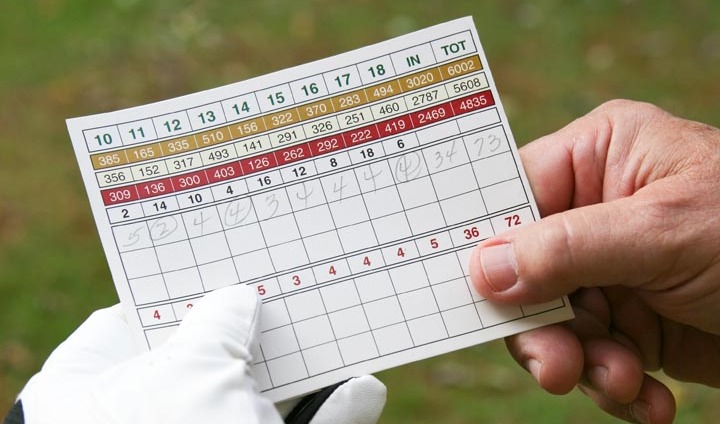Hi all you MyGolfMind golfers and I do hope your well, doing the housework and staying fit for golf during these unpresented pandemic times. I guess for most of you that have a garden you’re are able to get out and practice your swing, chipping and everybody should be indoor putting as a minimum! If so that’s great news and please continue the best way you can and as there’s lots of golfing social media out there, so there is plenty watch on screen.
However, what are you doing to improve your mental tenacity – well MyGolfMind hopes that the following tips will enable you to work on all the four main elements needed to be as good a golfer as you can be, okay?
• The four main elements of golf that you need to manage regularly:
- Biomechanics (shot making technique)
- Mental tenacity (thought processes)
- Physical fitness (always remember to loosen those muscles off with a few stretching exercises before and after your practice. I recommend looking up specialist golf trainer Jamie Greaves (
https://jggolffitness.co.uk) who has some great Twitter and Facebook feeds)
- Nutrition (remember to consume as a minimum your five-a-day fruit and vegetables as well as drink plenty of water throughout the day. Water is about 60% of our body weight so we must ensure that we maintain that level at all times to protect our vital organs like our kidneys and brain to maintain our cognitive (thought processes) performance, among other important things)
Each of the above four elements are essential if you want to be the best golfer that you can be! And there will be a few of you MyGolfMind golfers that have aspirations of reducing your handicap, protecting it, or even going on a golfing scholarship! That’s brilliant to have big dreams, so read, take note and practice the following drills, and if you have any questions then get back to me on
https://www.mygolfmind.com.
1. First and foremost, we all need some discipline and I suggest that you set yourself a target of ‘X’ minutes or hours to spend practicing your golf. For some of you this will be every day and for others perhaps every other day or so, depending on your circumstances. As MyGolfMind golfers I would expect you to have a journal or notebook to record THREE things that went well (i.e. driving, getting out of two bunkers and putting to save par on four holes etc.) during your last round or practice and one thing you’ll going to practice between now and when you next play / practice.
The main thing here is to record and note what your practicing i.e. if your chipping into a bucket, then hit 10 shots with a sand wedge and record how many out of ten and repeat using a gap wedge and then a lob wedge. The next time when you practice these exercises then the aim to is to improve your score, and with these exercises you are beginning to improve and strengthen your self-esteem and confidence that your improving the accuracy and dealing with the pressures. Always practice under competition pressure – just like the top professional golfers do.
Begin to take note of what you see, hear, feel and notice what’s going on as you complete each exercise and record this into your journal or notebook as well.
2. With every golf shot you make then remember to use the two-box routine and use the link https://youtu.be/TAq9Uzn_aZ4 to remind yourselves. Remember the most important thing is to take a deep breath just before you step from the Strategy Box and slowly release it as you step into the Execution Box! This quietens the mind, thus minimising any mental thought interference mid-way through your shot. By using the two-box routine you’re again strengthening your self-esteem and confidence that when you step over the ball (wherever it happens to be on the golf course or practice ground) you’re able to make a full flowing shot on the ball.
3. Colonel George R Hall; United States Air Force served in the Vietnam war and was shot down in September 1965 and was held captive for most of that time in the Hanoi Hilton – a notorious war prison and he was released in February 1973. George was a four-handicap golfer prior to being captured and so one of the things he did to stay sane during his imprisonment was to practice his shot making skills and play his home course, hole by hole. On his return back home and after about four weeks recuperating, he went and played his first game of golf in over seven years and shot his handicap - four over par! A remarkable story that George puts down to practicing playing shots without a golf club to hold and visualising every aspect of his game and home course. He is quoted as saying that “he knew every blade of grass on the course”!
What a great attitude and discipline to have and one that we can copy during these unprecedented times during the pandemic lockdown. There a number of major leanings that we can take from Colonel George R Hall:
a) Life isn’t fair and what life throws at us we must confront it and deal with it accordingly – follow the Government’s guidelines and stay safe. In golf when we hit a poor shot then just accept that you’ve made a poor shot and take the learning from it to grow stronger and wiser next time
b) George didn’t have a golf club to swing and often was in such confined spaces all he could do was mentally visualise playing the shot in his mind and see what he could see, hear what he could hear, feel what he could feel and notice what he noticed whilst playing the shot. I repeat Colonel George R Hall said that “he knew every blade of grass”!
So, whether your practicing with a golf club in your hand or not you have the power to visualise every aspect of you shot making skills. You can also use ‘Google Earth’ to play around of golf and plan your strategy for when you can go out and play your course next. Once you’ve played the course the right way around then play it backwards and begin to see the course in a new light from green to tee – perhaps you could get to know every blade of grass?
Remember MyGolfMind golfers enjoy your time to practice your golf as the above will pay dividends when we’re all able to get back onto the golf course, if you want to be the very best golfer that you can be. Please continue to follow the Government Covid-19 guidelines, stay safe and well and till next time …
Keep it on the fairway
Keith Haynes
My Golf Mind



